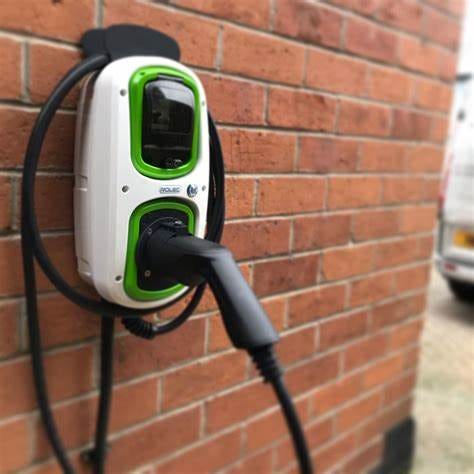How to Install Evs charger at home without any hassle?
According to most people, electric cars are smooth, quiet, reliable, and best of all, they don’t must drivers to stop at gas stations to Install Evs charger at home

If you’re paying attention to the hum that comes from the automotive industry these days, the hum you’re hearing is electrical. Automakers have either introduced new Electric car charging at home or announced plans to do so. And more is on the way. Several automakers claim that by 2030, more than half of the cars, trucks and SUVs sold will be electric. You know a few people in your area who have taken the plunge and bought an electric car. If they’re like typical EV Home Charger Installation owners, they’re admiring their new vehicle.
According to most people, electric cars are smooth, quiet, reliable, and best of all, they don’t must drivers to stop at gas stations to refuel. All of these attributes are distinct advantages, but the last one (he doesn’t stop at gas stations) has its own meaning. The electricity to charge your car has to come from somewhere. Unless you plan to trade a short gas station stop for a long session at a public charging station, we recommend charging your electric car charging stations at home. And that usually means you need an EV Home Charger Installation.
First, it helps to define what an Electric Car Home Charger is. It’s easy to see the smartphone in your pocket or handbag as an alternative to an electric car. like mobile phones, EV Home Charger Installation
have batteries that enable them to work. If the phone battery is depleted, the phone will not work. If you don’t have electricity stored in your electric car’s battery, you’re not going anywhere. And like your smartphone, using your car consumes electricity stored in your EV battery and ev charging stations. You need to recharge your car battery to replenish this stream.
How are you charging your smartphone? Plug it in, of course. But in reality, it uses a electric vehicle charger that converts 120 volts of alternating current (AC) from a common wall outlet into a current that the phone can use to charge its battery. Converting energy into a form that an electric vehicle battery can absorb is exactly what an EV Home Charger Installation Cost does. It takes the type of power available in your home (120 volts or 240 volts AC) and converts it into a current flow that an electric vehicle battery system can accept. Like parking lots in shopping malls and along some major highways, EV charging stations for commercial electric vehicles use much higher voltages and can charge batteries much faster than domestic charging stations. increase. But, it is very expensive to install. And even if you had the money to buy a commercial charging station, your home electrical system or even your home power grid might not be equipped for it.
Besides to the price difference between gasoline and Electric car home charger installation, the transition to all-electric drive requires some initial investment in purchasing and installing EV home charging stations. But, as we have shown, electric vehicles cost less per mile than comparable internal combustion engine vehicles. Once that is decided, electric car charging stations will need to be more competitive in terms of the buy price. Additionally, public charging stations must be made more available to persuade Americans to favour electricity and forego dinosaur juice.
Comments
Post a Comment